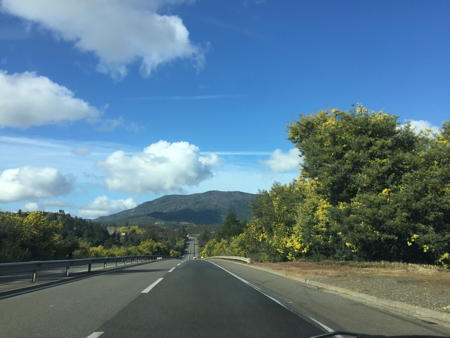You’d certainly hope after seven months in Chile I would have learned something, right?
In fact, I think I’ve gained both professionally and personally. Life is lived forwards but understood backwards. For example, I never knew when I was training for the world championships that it would prepare me for the long haul of building a company.
I’m sure that some of what I’ve learned here will only be evident in hindsight, but here is what I can say right now.
I better understand the needs of rural communities. You might think after all of those years of living and working in North Dakota, that would be a no-brainer.
Working with the schools in Tomé, it became abundantly clear that we needed games that worked offline. You may think this is unnecessary and every school has reliable internet and every kid has a cell phone with an unlimited data plan.
A. You’re wrong and B. If they do have a limited data plan, they don’t want to use their data for anything related to school or education. They want to use it to text their friends and post on social media.
I realized the assumption that people always have Internet access is stupid
So, we modified first one game to run off line and it was so much more convenient in schools without wifi, in urban schools with unbearably slow wifi, on the subway, for demos where we didn’t have the school password and our cell phones didn’t work because we were in Chile and didn’t have the data roaming turned on. I know this is going to be a big benefit for the kids who live outside of Warwick, North Dakota.


This is something I cannot believe we didn’t do before. My only excuse is that I live in Los Angeles county and am so immersed in the tech world where people are connected 24/7 , and even when I’m in Spirit Lake or Turtle Mountain, I’m at a hotel where I have wi-fi. So, it’s easy to overlook lack of access as a temporary inconvenience until you come face to face with it for an extended period.
I developed a real empathy for anyone working or studying in their second language
Of course, I always knew it must be hard to live, study or work in the U.S. if English is not your native language, I’m not stupid. However, I never had any idea how incredibly hard it is. When I first arrived in Chile, if I had to give a 3 minute pitch in Spanish, it would take me 3 days. I’d have to translate it, check the translation and then practice over and over until I had it memorized. After a couple of months, I could prepare a one-hour lecture over about four days. Now, it takes me about 4 or 5 hours for a one-hour talk. In comparison, a one-hour lecture in English takes me about an hour to write. After all, I’ve been a professor for 30 years.
I’m almost a different person when I have to conduct business/ give lectures in Spanish. I’m less confident that what I’m saying is correct, not because I’m not a self-confident person but because I am not 100% sure I’ve used the right words. I’m less articulate. Even if I know what I want to say, a lot of the nuance is lost. For example, today I mentioned “the road less traveled”. If you speak English, you may not realize that came from the Robert Frost poem, but you probably understand that it doesn’t mean literally a road but rather the less common choice, and usually refers to life or career choices.
It’s harder to connect with people, not just because of cultural differences, but also because it’s harder for me to say exactly what I mean and I’m not 100% sure I understand them, either.
I hereby apologize to every professor and every student I ever had who was not a native English speaker
I had zero conception of how much effort it takes to read anything at a college level in a language you aren’t really fluent in. I’m sitting here thinking of how I can make my classes more accessible to students who are less than proficient in English. I’ve always been in the habit of putting my PowerPoints on the course website for download and recording the class so students could watch it and review later (I mostly teach online).
I understand what it’s like to have limited literacy
If I ever really struggled in school, it’s been so long ago that I don’t remember it. Now, I have real experience being someone who has difficulty reading (in Spanish). I understand the difficulties people face when they can’t read or write very well. Since I work with a lot of programs serving those people, having a better understanding of them can only be a good thing.
I’m not sure what I thought Chile would be
I was chatting with my cousin on Facebook tonight and she asked me,
“Was it everything you thought it would be?”
I told her,
“I’m not sure what I thought it would be, but I have learned a lot.”
